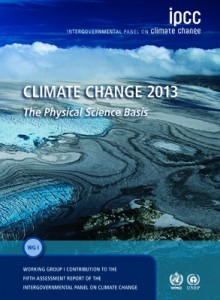Climate Change is Real and Human Activity is Responsible – IPCC
 ‘Human influence on the climate system is clear’ and‘Warming of the climate system is unequivocal, and since the 1950s, many of the observed changes are unprecedented over decades to millennia.’ These are two of the headline statements from the recently releasedIntergovernmental Panel on Climate Change (IPCC) report.
‘Human influence on the climate system is clear’ and‘Warming of the climate system is unequivocal, and since the 1950s, many of the observed changes are unprecedented over decades to millennia.’ These are two of the headline statements from the recently releasedIntergovernmental Panel on Climate Change (IPCC) report.Set up in 1988, the IPCC is a UN body based in Geneva that evaluates the state of climate science. It produces major assessments every five-seven years.
Scientists have spent the last few years – on a voluntary basis – collating and summarising peer-reviewed climate science. The IPCC does not produce original work itself, but summarises what has already been published in scientific journals. A total of 209 Lead Authors and 50 Review Editors from 39 countries and more than 600 Contributing Authors from 32 countries contributed to the preparation of the most recent report.
Amazingly many political leaders are in denial when faced with the overwhelming scientific evidence about this most serious threat to the planet, and remain unwilling to implement the potentially unpopular measures needed to address the issue.
The major predicted effects of climate change (many of which can be seen to be occurring at present) include:-
-an increase in extreme weather events
-significant biodiversity loss through species extinction
-reductions of crop productivity
-significant loss of water availability for human consumption
-more frequent coastal flooding and increased erosion from storms and sea level rise
-an increased death rate from disease associated with floods and droughts
Some of the other major findings highlighted in the report include:-
The atmosphere and ocean have warmed, the amounts of snow and ice have diminished, sea level has risen, and the concentrations of greenhouse gases have increased.
Each of the last three decades has been successively warmer at the Earth’s surface than any preceding decade since 1850.
Over the last two decades, the Greenland and Antarctic ice sheets have been losing mass, glaciers have continued to shrink almost worldwide, and Arctic sea ice and Northern Hemisphere spring snow cover have continued to decrease in extent.
The rate of sea level rise since the mid-19th century has been larger than the mean rate during the previous two millennia.
The atmospheric concentrations of carbon dioxide (CO2), methane, and nitrous oxide have increased to levels unprecedented in at least the last 800,000 years.
Two more parts of the report are due to be published in 2014. Working Group Two (WG2) examines the impacts of climate change, and how plants, animals and humans can adapt, such as by building flood defences and adapting farming practices whilst Working Group Three (WG3) concentrates on climate mitigation – efforts to mitigate the most extreme scenarios of warming by cutting greenhouse gas emissions from power stations, factories, cars, farming and other human activities.



 17 October 2013
17 October 2013 







No comments yet... Be the first to leave a reply!